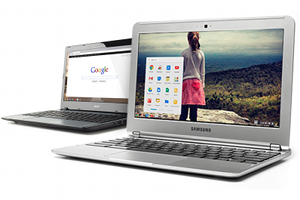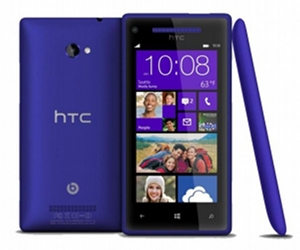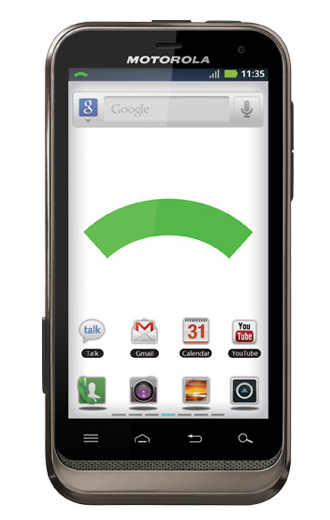Review: Two Years With the Google Chromebook
The Laptop for People Who Shouldn't Have a Laptop

|
BY JOE PROCOPIO •
@jproco •
12.14.12
| |||||||||||||||||
Top Visited Startup Profiles (Last 7 Days):
Republic Wireless, SYNSTREAMS, Automated Insights, Novametics, Organic Transit
Republic Wireless, SYNSTREAMS, Automated Insights, Novametics, Organic Transit
Filed Under: NEWS: Startups
 I was one of the lucky few (OK, the lucky 60,000) who got their hands on the Google CR-48, the first shipped Chromebook, almost two years ago to the day.
I was one of the lucky few (OK, the lucky 60,000) who got their hands on the Google CR-48, the first shipped Chromebook, almost two years ago to the day.So consider this the longest review ever.
But that's not to say it isn't timely. The Chromebook has finally matured to the point where it can be considered a purchase during the holiday season, whether for you or a loved one -- I'm not here to judge. It's available in four different flavors from two different manufacturers, Samsung and Acer, with prices ranging from $200 - $550.
The question is: Should you make that purchase?
That depends. It really... really depends.
First, let's define what a Chromebook is. It's actually a pretty awesome idea -- a small, inexpensive laptop (think netbook) that runs the Chrome OS, meaning that you're locked into a Chrome-web-and-Chrome-app cloud universe.
But ideas are ideas. In practice, you need to be connected to the Internet to get any serious usage out of the Chromebook, which you can do with WiFi or a 3G mobile connection with the more expensive Samsung 550 3G.
When I first unboxed my CR-48, I was intrigued and a little impressed. It booted up in seconds and, thanks to the ubiquity of Gmail/Drive, I was set up in minutes. The design evokes an ultrabook, but keep in mind your aesthetic results may vary depending on which version you're looking at.
While the specs keep up with everything you want to do on a Chromebook, like any device, if you overload it, you'll get lag. In this case, that means you have to shut down a couple browser tabs. The 11-inch screen and sound are OK, what you'd expect from an entry-level laptop or netbook. The same holds true for battery life. If you're using the Chromebook as a primary machine, you'll need to plug in a couple times a day. If you're using it as a secondary device, like you would a tablet, you should be able to get through a day.
And that's how I decided to test the Chromebook. My first test was as a laptop replacement. Since I've already converted about 95% of my app usage to cloud-based offerings, I had a better chance than most.
But there were still too many times where I needed an application that wasn't web-based (image editing for ExitEvent articles, my stocks program, etc.), and I had to revert to my laptop. And those rare times when there was no WiFi and the 3G was mind-numbingly slow, the test failed. Hard.
The next test was as a secondary device. Here, as a tablet replacement with a keyboard, the Chromebook performed admirably. Any time I was going somewhere and I knew I didn't need any functionality outside of the basics, and I knew I would have Wifi, I could bring the Chromebook and leave the laptop behind
But in those situations, I could have also brought a tablet. And since tablet functionality has made leaps and bounds in the last two years and the prices have also come down to match ($159 for a Kindle Fire or $199 for a Nexus 7), the smaller footprint of those devices wins out. In fact, in most of those situations, unless I'm doing a lot of typing, I can just bring my mobile, thanks to Jellybean.
So that was it. About six months into my testing, the Chromebook went back into its box and remained there.
Then it happened. One of my kids destroyed my wife's Windows laptop for a second time, requiring me to wipe the drive and start over. After spending the better part of another weekend installing drivers, software, and resetting preferences, I decided to get the kids their own laptop.
That's when it hit me. Give them the Chromebook.
This was a year ago, and the results have been stellar. They can't break the Chrome OS, or at least they haven't yet. I've had to reboot the Chromebook exactly once when it locked up under the weight of too many simultaneous Spongebob spelling games and Webkinz sessions.
Plus, while the Chrome app store is limited, to say the least, it does have several options for education, entertainment, and whatever qualifies as productivity in their world, including Google Docs for homework.
It's perfect for them, and a huge relief for me as the designated fixer of any computer malfunction in my own house... and that of my extended family.
Which led to an epiphany. The Chromebook is not only the perfect laptop for my kids, but for my parents, aunts and uncles, a few cousins, anyone who would call me when they get a registry error or download new software and can't figure out how to install it.
So that's the unintentional niche of the Chromebook. It's the laptop for people who shouldn't have a laptop. It's also the laptop for organizations who need a lot of laptops with not a lot of functionality on each. Schools, some businesses, that kind of thing. Google has caught onto this, by the way, and has started a program for schools to get discounted Chromebooks.
Look, at some point, personal cloud computing as a primary option will become the norm, there's no arguing with that. To me, the Chromebook is a definite, if awkward, step in that direction. It feels like it's about 80% there, but if that other 20% is going to stop you in your tracks, then look elsewhere.
If not, the Chromebook is an inexpensive, easy-to-use, hard-to-mess-up lifesaver.
You Might Also Be Interested In
 Review: The HTC Windows Phone 8X
Review: The HTC Windows Phone 8XAw man, am I really about to gush over a Windows phone? I'll level with you. I'm an early Windows phone adopter - and I'm talking early - as in the Samsung SCH-i760 that I bought the day it was released back in 2007.
 Startup Funding: 7 Mistakes to Avoid on an Application
Startup Funding: 7 Mistakes to Avoid on an ApplicationJust about every day I'm presented with at least one question from an entrepreneur looking to learn more about the funding process. How do you get introductions to venture capitalists? What do you say when you finally get in front on one?
 My $100 Email to Mark Zuckerberg
My $100 Email to Mark ZuckerbergHey Mark, What's up? How was your 2012? Congrats on marrying Priscilla and registering as an organ donor. Sounds like it was a banner year.
 Review: Motorola Defy XT on Republic Wireless Unlimited Everything for $19 a Month
Review: Motorola Defy XT on Republic Wireless Unlimited Everything for $19 a MonthThere's a lot to like about what Durham's Republic Wireless is trying to do in the increasingly expensive world of mobile phone plans. Not everyone needs an iPhone 5 or a Galaxy S III.
 Guess What? Startups Die, Regardless of a Series A Crunch
Guess What? Startups Die, Regardless of a Series A CrunchMy N&O; column yesterday was a well-received, almost feelgood piece about how the Series A Crunch won't impact the Triangle Startup Scene. But here you'll get the darker side of the story. That article was really about the fact that startups die.